To start with some facts and figures, about 0.1% of Indians invest in foreign stocks.
This ‘near-to-zero’ statistics are partly due to the Indian market being largely unaware and uneducated about financial investment, and partly due to the myths (or call them fears) surrounding financial investment.
Vested Finance Inc , a financial investment advisory company, plans to tap into this huge Indian market, and get Indians to dive into the US stocks market.
In this article, we are going to review Vested Finance Inc., check if they are legit enough, and if they are worth giving a try.

About Vested Finance
Founders : Viram Shah, Darwin Arifin, Eric Huynh, Yinghan Lin
Founding Year : 2018
Funding : Yes
Platforms : PC, Mobile
Available as Android App : Yes
Available in iStore : Yes
When looking for Vested Finance, make sure you are looking at vested.co.in. There are a number of companies named Vested, and some of them even deal with investment in some form.
Why Vested Finance wants You to invest in Foreign Stocks
Viram Shah, co-founder and CEO of Vested Finance is of the view that Indians should have more access to the US investment market. He believes that the financial portfolios of Indians are locally concentrated whereas there is huge potential for better returns on global investments.
Apart from contributing to a well-balanced portfolio, there are a number of strong points that Vested Finance puts up in favour of investing in US Companies :
- Indians are well-acquainted with quite a good number of key players in the US investment market. In fact, a large number of Indians use Amazon, Netflix, Facebook, Google and other large brands regularly for their purchases.
Vested Finance wants Indians to not only use these brands but also invest in these growing brands to reap in the benefits of global market growth. - Investment in the US market through Vested is in American Dollars. This means that you are unaffected by the rise and fall of the rupee while investing.
- Investment in the US Markets has been mostly a costly affair with higher minimum deposits, complex verification processes, and huge remittance (explained further down in the article). Vested Finance has made it easy and cost-efficient. With zero commission on stocks, secure and easy to track app platforms, now is the right time to invest in the global US market.
Vested Review – Features of Vested Finance at a glance
- Zero Commission on US Stocks and ETFs.
- Investment in Fractional Shares available.
- Zero account opening charges
- No minimum balance requirement.
- No inactivity fee.
- 1000+ US Stocks and ETFs available for investment.
- Curated, research-based portfolio investment based on specifics like industry, available for a nominal fee under the Vests plan.

Let us now discuss the features at length and also some of the relevant questions that arise related to these features and foreign investment in general. Let us start with some of the most important questions first.
Vested Review – Is Vested Finance Legit?
The first research you should conduct while searching for an investment company is whether they are a legitimate company, regulated and supervised by reputed financial organizations.
To understand Vested Finance’s legit status, we will first have to see how they conduct investment in US companies.
Vested Finance invests in US stocks through their partner broker firm – Drivewealth.
In simpler terms, Vested Finance does not invest your money directly in the US companies, it does so through a brokerage firm – DriveWealth.
So is DriveWealth regulated? Yes, it is.
DriveWealth is regulated by two prestigious regulatory bodies in the US – FINRA (The Financial Industry Regulatory Authority) and SIPC (The Securities Investor Protection Corporation).
FINRA is a US government regulated authority, while SIPC is a non-profit corporation. Both FINRA and SIPC are regulated by The Securities and Exchange Commission (SEC). SEC is an independent US Federal Government agency for protecting the rights of investors.

The SEC is also responsible for enforcing regulatory orders for fair and just functioning of the securities market.
Now what about Vested Finance? Is it under some regulatory body too?
Yes, Vested is registered with SEC.

A thing to note here – Vested is an American company that is facilitating US investment for Indians. Since the company is registered in the USA, it does not come under the purveyance of Securities & Exchange Board of India (SEBI) and RBI, nor is it mandated or regulated by them.
Sounds a bell? Well, it shouldn’t really. One thing to remember is that when investing in global stocks, the regulations of the country of origin of the companies is all that matters.
So when investing in US stocks, we need to check if the brokerage is regulated by the appropriate governing authorities of the United States.
Verdict : Vested Finance is legit.
Vested Review – Is Vested Finance Safe?
Investment in stocks and debentures always accompanies a certain amount of risk. The risk is variable depending on whether we are investing in stocks or ETFs or bonds or index funds.
Vested Finance is as safe as an Investment Advisor can be. The partner brokerage firm DriveWealth is also as safe as a brokerage firm can be. We can say so on the basis of their licenses from SEC, FINRA and SIPC.
Verdict : Vested Finance is safe to invest in.
Ready for investment? Know what differentiates bonds from ETFs. Read here.
Vested Review : Will I lose money with Vested Finance?
Agreed, investments come with a risk. However, the chances of your losing out due to the brokerage going corrupt become less with the regulations put by FINRA and SIPC.
As per the Vested website, “Each brokerage account opened with Vested is insured by SIPC (Securities Investor Protection Corporation) up to $500,000. This includes $250,000 in cash.” This is applicable in terms of worst-case scenario of Vested Finance and DriveWealth being shut down.
Verdict : You will not lose money if Vested goes out of operations.
Vested Review : How can I invest with Vested Finance?
With all doubts clarified regarding the security and legibility of the company, our interest now is on how easy or difficult it is to start investing and trading with Vested.
Opening an account with Vested is easy. The process takes just a couple of minutes. A few documents that prove your Indian citizenship identity, and your Permanent Account Number (PAN) are needed.
Once your account is verified and active, you can start putting funds in your account and invest in the stocks of your choice. We strongly recommend some research into the companies before investing. Liking Facebook and investing in Facebook is not the same thing after all!
Vested DOES NOT CHARGE ANY COMMISSION on US Stocks and ETFs investment.

Vested Review – Vests Plan
If you would rather have Vested do the research for you and advise you on the best investment portfolio as per your risk tolerance, they have a ready plan to assist you under the “Vests” Plan feature.
Your Vests portfolio may comprise only stocks or stocks and ETFs and comes with a fee for the curation and advisory procedure. There is a $3 USD fee for per purchase under the Vests plan. At a glance, the Vests plan has the following features :
Vests Plan Offers : Curated portfolio and research-based allocation based on investor risk-tolerance and industry preference.
Plan Fee: $3 USD per purchase.
Minimum Amount Needed Per Purchase : $50 USD.
Vest Plan Monthly Fee : 0.0417% of the amount invested per month.
If you have a substantial amount to invest in US stocks, and you do not want to take the hassle of doing the hard work of researching and resource allocation, opting for the Vests programme would be good.

What are fractional shares?
A fractional share is a part or so to say a fraction of a whole share. So, when you buy a fractional share of a company, you are not even buying one whole share but rather a part of the share.
A fractional share is investing your money in the company instead of investing for shareholder ownership.
So, for example, if one share of Facebook is priced at $250 USD, which is almost Rs. 18,000+ in Indian Money, you might not want to purchase one single unit of share at such a high price. You might instead be willing to invest $30 USD or something close to Rs. 2500 in Facebook shares. In such a scenario, you can buy a fraction of one share of Facebook.
Fractional shares encourage participation in global investment especially from developing economies like India.
What about Remittance?
For those of you not acquainted with the term, Remittance is the fee paid for sending money to foreign countries or for withdrawal of foreign currency to an Indian bank account.
That means remittance works both ways – when you send money abroad or when you receive money from abroad.
As per the RBI’s Liberalized Remittance Scheme (that vested follows), an Indian citizen can send up to Rs. 1.8 crores in a year.
The outward remittance is Rs. 500 for funds up to $500 USD. For transactions above $500 USD, the remittance is Rs. 1000 or closer to Rs. 1000.
This means that while there is no commission fee for stocks/ETFs on Vested, you will still have to pay for outward remittance.
Similarly, there is either an inward remittance or reduced conversion rate from dollar to INR while withdrawing funds from your Vested Finance Account. The amount is usually the same as outward remittance.
The remittance fee varies from bank to bank.
Pro Tip : While trading and investing, keep in mind that your returns need to accommodate the remittance fee. This means that you should ideally trade during a high dollar to rupee rate. You can also wait for a favourable time when stock prices are high to ensure profitable returns.
Does Vested Finance have a demo account?
No, Vested Finance does not provide a Demo Account to try the platform before creating a real account.
Vested Review – Quick Glance at Fee Structure
Let us now take a quick glance at the fee structure of Vested (as of October 2020).
Commission on Stocks/ETFs : 0%
Commission on Curated Stocks : 3% of the invested amount per purchase + 0.0417% of the amount invested monthly.
Outward Remittance Fee : Yes, Variable (generally up to Rs. 1000).
Inward Remittance Fee : Depends on Bank. Variable, usually up to Rs. 1000.
Reduced Dollar to Rupee Conversion as a part of Remittance : Yes, conversion rate percentage varies.
How does Vested Earn if there is no commission?
We all know brokers hanker after our money in the form of commission. How does then Vested plan to make money if they do not charge a commission on stocks and ETFs?
Though Vested has not clearly specified their money-making terms, we can think of the following possible ways Vested plans to monetize their offerings :
From the Vests Plan : The zero commission basic plan of Vested does sound lucrative but in reality, a lot of investors would rather have a trusted source curate their financial profile. With the one time fee and per month fee being low, the Vests plan of Vested can prove to bring good revenue to the company.
Vested has recently launched a Premium Plan, which you can opt into. The offerings under the Basic plan will not be affected, and you can continue to use our Basic Plan at no additional cost.
Participating in the Premium Plan is optional. If you choose our premium plan, the cost is ₹750 per quarter or ₹2,500 per year.
By purchasing the Premium Plan, you will enjoy access to the following:
- A new set of Multi-Asset Class Vests
- No upfront fees for Vests, a US$3 savings for every Vest purchase
- 1 free withdrawal per year, an US$11 savings
Access to Multi-Asset Class Portfolios
You will have access to three different Multi-Asset Class Portfolios.
These portfolios are developed to enable you to invest in diversified core assets that balance performance and downside protection. The three portfolios use the same underlying ETFs to represent different asset classes, but the varying asset classes are weighted differently to match different risk profiles.
Earnings from Investors’ Uninvested Cash : This is an accustomed practice with large US brokerage firms. These large firms put all the unused, uninvested amounts of their clients in their subsidiary banks and earn interest revenue on the money.
When you have a large client base, there is always going to be a substantial amount of their money being uninvested. The brokerage firm can easily earn interest on this uninvested money.
For Vested Finance, there might be a way they need to work this out with their partner brokerage firm in the US – DriveWealth.
A point to note here is that Vested Finance is an investment advisory firm, and the money of their clients does not remain with them, it instead is in the custody of their brokerage partner – DriveWealth.
It is too early to assume that Vested and DriveWealth together are making a lot out of their investors’ uninvested money.
New Feature – Recurring Investments

Vested has launched a new feature that allows you to set up recurring investments.
With recurring investments, you can automatically invest in stocks, ETFs, or Vests, at fixed intervals.
Just like you set up a SIP for mutual funds in India, you can now set up automatic investment instructions to buy U.S stocks via Vested.
Our Final Verdict on Vested Review
Vested Finance is reliable, it can be trusted.
If you would want to read their risk disclosure and terms and conditions and privacy policy, you can do so here, here and here. You can also read their FAQs here.
Have you invested through Vested? If yes, share with us your experience of global investing, we would love to hear!

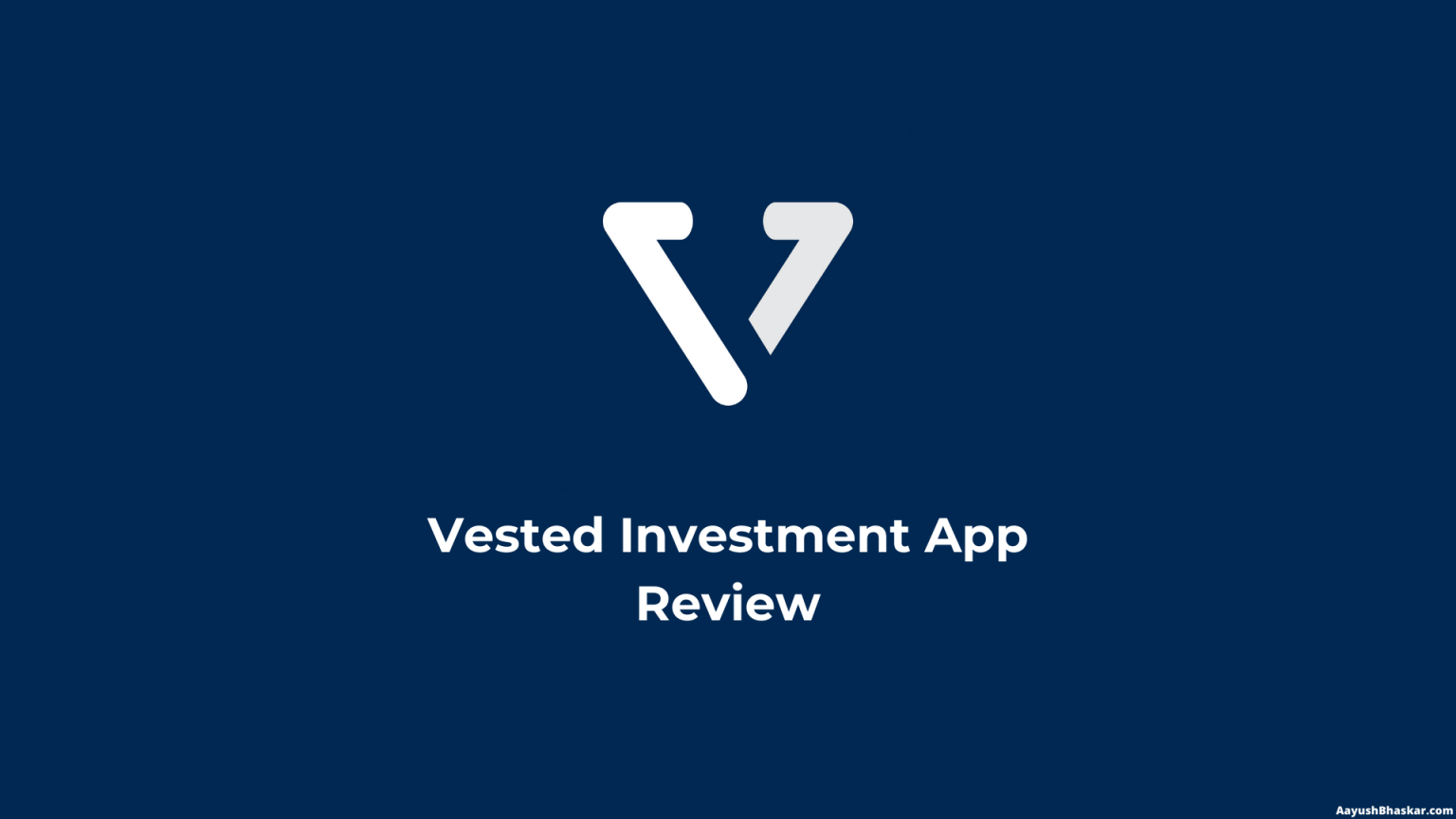
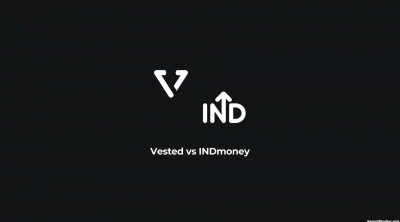
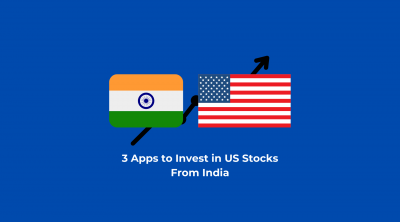
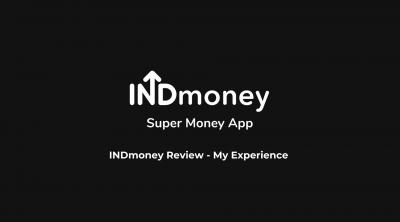

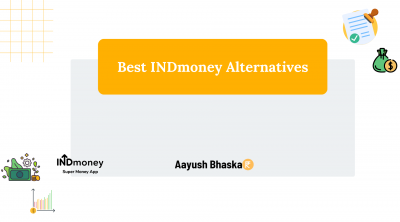
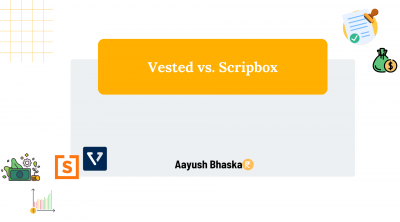
thanks for the useful information. whether derivatives and commodities market also available or not. Can we do investment through credit card options. Normally CFD broking agents are allowing credit card investments. Daily intraday trade any extra exposure available?. Any margin trade fund available. Please let me know.
Hi Ganapathy,
As far as trading goes, there’s a goodwill violation protocol in place with Vested, so you won’t be able to trade often. I don’t think I’ve come across any app or platform that even remotely considered introducing margin and CFD trading in India.
You should never use your credit card money to invest – a very bad idea. Still, if you wanna do it, you could use services like Paytm and MobiKwik to route your credit card cash to your bank account, then use it to buy US stocks.
In whose name are the full shares or fractional shares held in books of the brokerage firm, drivewealth ? Is it the name of Vested ? Or is it in the name of the investor ? If Brokerage goes bust, who is eligible to claim the money – investor or Vested ?